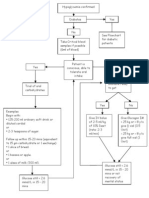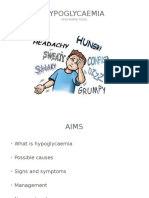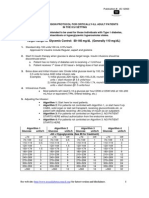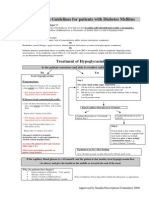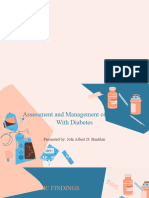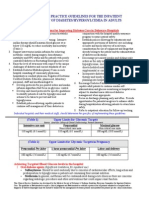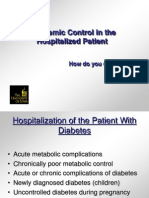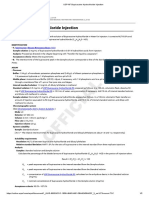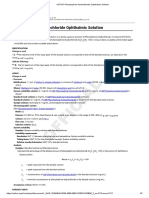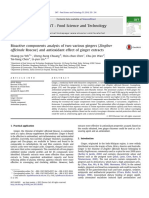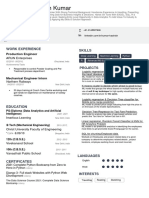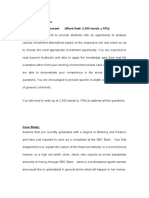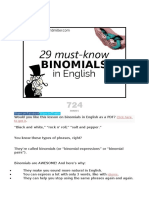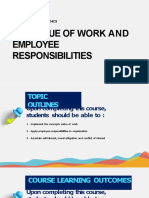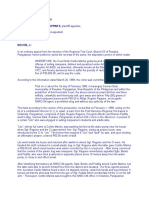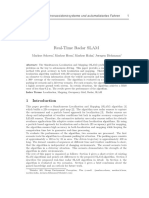Algorithm for the Management of Hypoglycaemia in Adults with Diabetes in Hospital
Hypoglycaemia is a serious condition and should be treated as an emergency regardless of level of consciousness
Hypoglycaemia is defined as blood glucose of <4.0mmol/L (if not <4.0mmol/L but symptomatic give a small carbohydrate snack for symptom relief)
See full guideline “The Hospital Management of Hypoglycaemia in Adults with Diabetes Mellitus” at www.diabetes.org.uk/joint-british-diabetes-society
Mild Moderate Severe
Adults who are conscious, orientated Patient conscious and able to swallow, but Patient unconscious/fitting or very
and able to swallow confused, disorientated or aggressive aggressive or nil by mouth (NBM)
Check ABCDE, stop IV insulin (if running) Check ABCDE, stop IV insulin (if running) Check ABCDE, stop IV insulin, request
Give 15-20g of quick acting carbohydrate, If capable and cooperative, treat as for mild medical support urgently.
such as 5-7 Dextrosol® tablets or 4-5 Lift hypoglycaemia. If not capable and cooperative Give 100ml 20% dextrose or 200ml 10%
GlucoTabs® or 150-200ml pure fruit juice** but can swallow give 2 tubes of 40% glucose gel dextrose over 15 minutes
Test blood glucose level after 10-15 minutes (squeezed into mouth between teeth and gums). If IV access not possible use 1mg
and if still less than 4.0mmol/L repeat Test blood glucose level after 10-15 minutes and Glucagon IM*
treatment as above up to 3 times. If still if still less than 4.0mmol/L repeat as above up to Recheck glucose after 10 minutes and if
hypoglycaemic, call doctor and consider IV 3 times. If still hypoglycaemic, call doctor and still less than 4.0mmol/L, repeat
dextrose or IM glucagon as per “severe” consider IV dextrose or IM glucagon as per treatment as above
pathway “severe” pathway
Check glucose after 10-15 minutes. Once blood glucose level are now > 4.0mmol/L or above: Give If glucose now 4.0mmol/L or above, follow
20g of long acting carbohydrate e.g. two biscuits, slice of bread, 200-300ml milk or next carbohydrate up treatment as described on the left.
containing meal. Give 40g if IM glucagon has been used. For patients with enteral feeding tube give If NBM, once glucose >4.0mmol/L give
20g quick acting carbohydrate via enteral tube e.g. 50-70ml Ensure® Plus juice or Fortijuce®. 10% glucose infusion at 100ml/hr until no
longer NBM or reviewed by doctor
DO NOT omit subsequent insulin doses. Continue regular capillary blood glucose monitoring *Glucagon may take up to 15 minutes to work and may be
for 24-48 hours. Review insulin and/or oral hypoglycaemic doses. If previously on IV insulin, ineffective in treating hypoglycaemia in undernourished
would generally consider restarting insulin once blood glucose >4.0 but may require review patients, in severe liver disease, sulfonylurea induced
of regimen. Give hypoglycaemia education and refer to inpatient diabetes team. hypoglycaemia and in repeated hypoglycaemia.


















